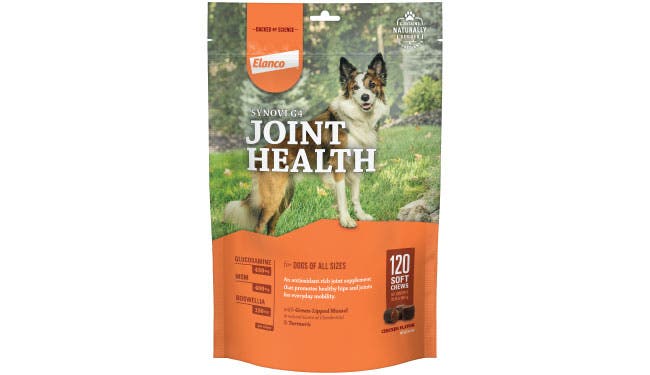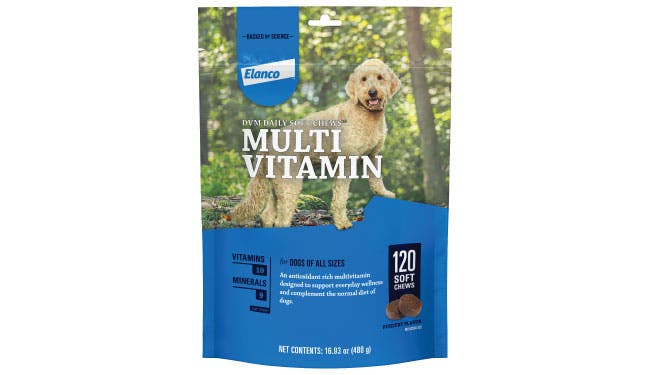Vitamins and supplements can benefit your pet.
While your pet’s food includes vitamins and minerals, your cat or dog may benefit from additional pet vitamins and supplements, too. Here's what you need to know to choose the right supplements for your dog or cat.
People may think nutritional supplements are only for humans, but cats and dogs of all ages can benefit from pet vitamins and supplements too. While some pet foods have added vitamins and minerals, a high-quality pet supplement can offer many health benefits for your dog or cat.
Types of Supplements for Dogs and Cats and Their Benefits
From joint health to digestive support, pet vitamins and supplements are formulated for a wide variety of needs. The most common supplements for cats and dogs contain one or more of the following:
- Joint supplements: Containing ingredients such as glucosamine, Perna canaliculus (also known as the New Zealand green-lipped mussel), and/or chondroitin sulfate, these help support the cartilage, ligaments, and synovial fluid in your pet's joints.
- Omega-3 fatty acids (EPA and DHA): Commonly known as fish oil, these fatty acids are important and not only support joints and healthy mobility, but are also beneficial to your pet's skin, heart, kidneys, and immune system.
- Probiotics, prebiotics or synbiotics: Everything from stress to food sensitivities to antibiotics can throw off your pet's digestive system, so these ingredients help balance the bacteria in their gastrointestinal tract and keep things normal. Probiotics are beneficial live bacteria that help keep the gut balanced and promote a healthy immune system. Prebiotics are a type of fiber that feeds good bacteria, including probiotics, while synbiotics are a blend of probiotics and prebiotics and tap into the benefits of both.
- Antioxidants: These ingredients are sometimes added to other supplements or are found in a general multivitamin designed to support your pet's overall health. Antioxidants are molecules that neutralize free radicals, which are unstable molecules that can cause damage to cells and are responsible for typical signs of aging, but can also cause illnesses. Bioflavonoids are a type of antioxidant derived from plants, and may help with allergies, cardiovascular health, and support the immune system.
What to Know before You Give Your Pet a Supplement
The first step is to talk to your veterinarian about your pet's age, lifestyle, and medical history to determine which supplements could be beneficial for them. Ask your vet if they recommend a specific brand — there are a variety of options with varying grades of quality available. Dogs and cats digest and metabolize ingredients differently than humans do, so look for supplements specifically made for pets from brands with strict quality-control standards.
A good indicator of quality is the National Animal Supplement Council (NASC) Quality Seal. Companies must complete an independent facility audit and comply with the NASC's stringent quality requirements to earn permission to display the NASC Quality Seal on their products.
Providing your pet with additional support through vitamins or supplements may help maintain your pet's health. Just as human bodies have different needs from animals, dogs' and cats' systems are also very different from one another. Read the supplement packaging carefully to make sure the products you choose are appropriate for your pet's needs and lifestyle. And if you have any questions or concerns about giving your pet vitamins or supplements, talk to your veterinarian.

Synovi G4® Joint Health
An antioxidant-rich joint supplement for dogs that promotes healthy hips and joints.

Endurosyn® Digestive Health Probiotic Gel for Dogs
Endurosyn® is a three-day probiotic oral gel in a palatable poultry flavor to promote intestinal well-being during sudden times of stress in dogs

DVM Daily Soft Chews® Multivitamin
A daily multivitamin soft chew containing minerals and antioxidants to supplement your dog's daily nutritional needs.



